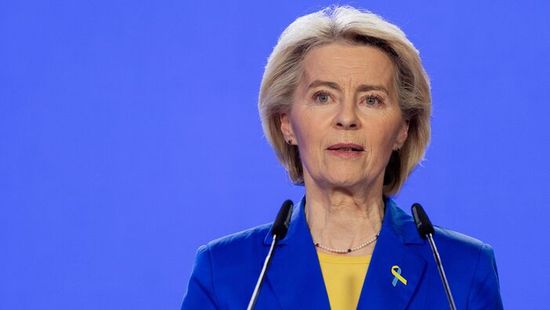Orbán móresre tanította Von der Leyent: megmutatta neki, mire képesek a magyarok (VIDEÓ)

„A szuvereintás jobb üzlet” – jelentette ki a Nézőpont Intézet vezetője.

As last year's attack on the liberal philosophers demonstrated, Fidesz wants to expand its hegemony beyond politics as well, hoping to create what Orban has referred to as, „a new, modern, right-wing culture.”
„The assault on the philosophers is just one example of the disturbing turn away from free and open democracy in Hungary that has taken place since Orban came to power in April of 2010. A day before the government announced its investigation of Heller, some 60 European luminaries, including the late Vaclav Havel, published an open letter decrying the state of affairs. (...)
Meanwhile, in January 2012 the parliament adopted a new constitution, which Fidesz had entered into discussion only two weeks earlier. (The party's campaign platform included no mention of a rewritten constitution). The document removed the word »Republic« from the country's official title, defined marriage as a union between a man and woman, and specified that life begins at conception. It also changed the legislative process, requiring a two-thirds majority to pass laws on many major issues such as tax and fiscal policy. This is not difficult for Fidesz now, but critics fear that it will raise barriers for subsequent parliaments. In fact, Orban admitted in an interview with an Austrian newspaper last year that by implementing the new restrictions, he is »tying the hands of the next government, and not only the next one but the following ten.« (...)

As much as Orban has changed Hungary's domestic character, he has changed its foreign policy orientation as well. Maps of the country two-thirds larger than its present size now plaster cars, postcards, and bars. This is the image of Greater Hungary, which existed for centuries until the post-World War I Treaty of Trianon carved up the Austro-Hungarian Empire. It included present-day Slovakia, parts of Croatia, Romania and Serbia. A kitschy emblem of Hungary's imperial nostalgia, it also represents a fundamental ambivalence among Hungarians about their position within Europe and attitude toward the EU. (...)
Viktor Orban — once the great hope of a united and liberal Europe — has failed the democratic test. It is up to Hungarians, and those interested in the future of democracy in Europe, to see that his failure does not become the continent's as well.”